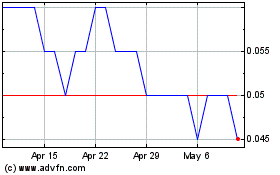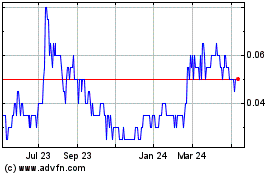Canada Carbon Inc. (the “Company”) (TSX-V:CCB), (FF:U7N1) reports
that it has completed the Bulk Sample Program for its 100% owned
Asbury Graphite Project located 80 kilometers (“km”) NNE of
Gatineau, near Notre-Dame-du-Laus, Québec. Working with SGS
Lakefield, the Bulk Sample Program consisted of work to complete a
full scope of analysis in the following areas:
- Head assays
- Bond Ball Work Index Analysis
- Flowsheet optimization
Head Assays
As previously reported (see Press Release dated
August 8th, 2024), the Company provided three ore samples for the
program : BK1 – high grade drill core, BK2 – low grade drill core,
and BK3 – a high grade outcrop. These samples were prepared for
testing, and a composite of the two drill core samples (BK1 and
BK2) was prepared and named Core Comp. The Company believe
that the Core Comp will be a fairly representative sample of the
overall Asbury deposit.
Carbon speciation analyses of these samples
shows graphitic carbon (C(g)) ranging from 1.36% to 5.86% from low
to high grade drill core, and a very high graphitic carbon
concentration of 15.7% in the outcrop sample. The 3.68% C(g) of the
Core Comp was well in excess of the average C(g) measured in the
Company’s Initial Resource Estimate (see Press Release dated May
16th, 2024). As measured in all samples, carbon occurs as both
graphitic carbon (C(g)) as well as carbonate (CO3) minerals. In
this flotation program, CCB evaluated the recovery of graphitic
carbon as opposed to total carbon (C(t)). Carbonates are expected
to be flushed to the tailings products. Total Organic Carbon
(TOC) is minimal in all samples.
Please click here to view image
Bond Ball Work Index
AnalysisBond Ball Work Index testing was conducted on the
three samples, BK1, BK2 and BK3 which produced similar work indices
ranging from 14.1 (BK2) to 14.6 (BK1). In comparison with SGS’s
database of thousands of ore types, shown in the graph below, the
Asbury samples fall in the median range of hardness percentile,
ranging from 47.4% to 53.3%. The result of this analysis
suggests that the hard rock host material of the Asbury deposit
results from geological events which contributed significantly to
the macro-crystalline nature of the flake to be produced from the
Asbury deposit.
Note: F80 denotes feed size (in microns), while
P80 denotes product size (i.e – measurement at which 80% of
particles are finer in size). BWI – Bond Work Index. KWh/t –
Kilowatt Hour per tonne.
Please click here to view image
Please click here to view image
Flowsheet Optimization As the
figure below indicates, the Company and SGS engaged in a very
thorough process of developing and optimizing the evaluate
tradeoffs between flake size and purity based on the length of
primary and secondary grind cycles and the number of rougher
columns or cells through which the concentrate will be cycled.
Global operating parameters utilized in the optimized flowsheet are
as follows:
|
Primary Grind: |
18 minutes in 2 kg rod mill @ 50% solids with steel rods |
| Polishing Grind of
Combination Flash & Rougher (Ro) Concentrate: |
15 minutes @ ~40% solids in
pebble mill with ceramic media |
| +100 M
Regrind: |
10 minutes @ ~40% solids in
SMM mill with ceramic media |
| -100 M
Regrind: |
20 minutes @ ~40% solids in
SMM mill with ceramic media |
Note: SMM – Stirred Media Mill
In the optimized flowsheet a flash flotation
stage was conducted on the crushed ore producing flash rougher
concentrates. The flash rougher tailings were ground and a rougher
concentrate produced. Two regrind circuits were added down-process
from a 100-mesh concentrate screen. The flowsheet then provides for
three cleaner columns to follow each of the +100 and -100 mesh
lines.
While the company was initially focused on
minimizing required grinding power, as well as the potential for
preservation of coarse-flake graphite, subsequent testing shows
that increased primary grinding eliminates +48 mesh flake from the
concentrate profile but results in significant gains in
purity. Given the focus on future participation in the battery
anode supply chain, producing a higher purity concentrate, which
would be easier and cheaper to purify, is ideal for the Company and
its potential future clients.
Please click here to view image
Floatation Tests Results
The Company’s final floatation test achieved
combined concentrate grades of greater than 98%
C(t). Important observations from the optimization process are
as follows:
- Primary grind time was increased
first from 12 minutes to 15 minutes and then from 12 minutes to 18
minutes.
- The 15-minute primary grind
resulted in P80 230 µm, while the 18-minute primary grind resulted
in P80 214 µm. However, it was determined that grinding to P80 214
µm is not required.
- Because of the finer primary grind,
the +100 M concentrate exceeded our target 95% C(t) grade after
screening (achieving 96.2% C(t)) and may not need cleaner stages at
all.
- The -100 M concentrate, after
secondary grinding, achieved a 95.2% C(t) grade after the
1st -100 M cleaner, suggesting that the remaining two cleaner
stages provided for in the work sheet may not be necessary at
all.
- It was also critical to note that,
in the final floatation test, the Company’s +150 mesh and the +325
mesh assayed out at 99.1% and 99.0% C(t) respectively.
Note: In concentrate samples
C(t) is assumed equal to C(g) as any carbonates are expected to
flow to the tailings.
Please click here to view image
Please click here to view image
"The completion of our Bulk Sample Program by
SGS Lakefield produced results beyond our expectations. We were
able to demonstrate that a composite sample of our ore recorded
in-situ grades in excess of the average in our Initial resource
estimate. Additionally, we have engineered a flowsheet which
produces high Ct concentrate from an efficient primary processing
operation. This will allow us to market an anode market product
which will be significantly easier and more cost effective to
purify. These characteristics are certainly important to the
battery anode space, but also attractive across a variety of high
margin applications. We intend to ensure that this scalable,
exceptional deposit is expeditiously developed and properly
positioned to maximize shareholder value." declared Ellerton
Castor, CEO of Canada Carbon.
Next Steps
With the Bulk Sample program complete, Canada
Carbon will target completion of the Asbury Pre-Feasibility Study
by the end of Q1, 2025. Additionally, the results will allow CCB to
conduct battery cell testing on the concentrate through Polaris
Labs. Finally, the Company will also expand its scope of lab
testing to begin qualifying the Asbury concentrate for a variety of
additional industry verticals.
Qualified Person This
press release was prepared by Rick Keevil, who is an
independent qualified persons as defined under National Instrument
43-101, and who reviewed and approved the geological information
provided in this news release.
Asbury Project OverviewThe
100%-owned Asbury Graphite Project is a past producing property
made up of 25 claims with a total surface area of 1,384.59 ha. It
is located 8.1 km northeast of Notre-Dame-Du-Laus in the
Laurentides Region of southern Quebec. The property is accessible
via gravel roads from Provincial Road 309 and Chemin du Ruisseau
Serpent in the Notre-Dame-du-Laus area. A power transmission line
runs through the property. Mont-Laurier, located approximately 44
km north, provides all amenities needed to perform basic mineral
exploration, such as a hospital, accommodations, restaurants,
groceries and other primary services. Additional amenities for
exploration, and a seasoned mining and exploration workforce, are
available from nearby towns of Gatineau to the south.
CANADA CARBON INC.“Ellerton Castor”Chief
Executive Officer and DirectorContact InformationE-mail
inquiries: info@canadacarbon.com P: (905) 407-1212
FORWARD LOOKING INFORMATION
This press release contains statements that
constitute “forward-looking information” (“forward-looking
information”) within the meaning of the applicable Canadian
securities legislation. All statements, other than statements of
historical fact, are forward-looking information and are based on
expectations, estimates and projections as at the date of this
press release. Any statement that discusses predictions,
expectations, beliefs, plans, projections, objectives, assumptions,
future events or performance (often but not always using phrases
such as “expects”, or “does not expect”, “is expected”,
“anticipates” or “does not anticipate”, “plans”, “budget”,
“scheduled”, “forecasts”, “estimates”, “believes” or “intends” or
variations of such words and phrases or stating that certain
actions, events or results “may” or “could”, “would”, “might” or
“will” be taken to occur or be achieved) are not statements of
historical fact and may be forward-looking information.
Forward-looking information in this press release includes
statements regarding the development of the Company’s Asbury
deposit and financing thereof, the entering of the joint venture
with Irondequoit Offering, future production from the Company’s
Asbury deposit, sales agreements and other matters related thereto.
In disclosing the forward-looking information contained in this
press release, the Company has made certain assumptions. Although
the Company believes that the expectations reflected in such
forward-looking information are reasonable, it can give no
assurance that the expectations of any forward-looking information
will prove to be correct. Known and unknown risks, uncertainties,
and other factors which may cause the actual results and future
events to differ materially from those expressed or implied by such
forward-looking information. Such factors include but are not
limited to: compliance with extensive government regulations;
financial abilities; the ability to develop the Asbury deposit;
domestic and foreign laws and regulations adversely affecting the
Company’s business and results of operations; the impact of
COVID-19; and general business, economic, competitive, political,
and social uncertainties. Accordingly, readers should not place
undue reliance on the forward-looking information contained in this
press release. Except as required by law, the Company disclaims any
intention and assumes no obligation to update or revise any
forward-looking information to reflect actual results, whether as a
result of new information, future events, changes in assumptions,
changes in factors affecting such forward-looking information or
otherwise.
Neither TSX Venture Exchange nor its
Regulation Services Provider (as that term is defined in the
policies of the TSX Venture Exchange) accepts responsibility for
the adequacy or accuracy of this release.
Canada Carbon (TSXV:CCB)
Historical Stock Chart
From Feb 2025 to Mar 2025

Canada Carbon (TSXV:CCB)
Historical Stock Chart
From Mar 2024 to Mar 2025
